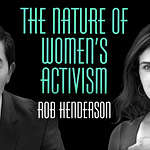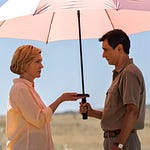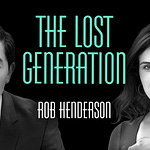Some topics covered:
Why rates of domestic violence are higher in same-sex couples, and why the standard sociological explanations might not tell the whole story
Conflict is less likely when there’s an obvious imbalance in size or power, and more likely when the two are evenly matched
A few thoughts on my next book project
Self-censorship among college students is less about fear of professors and more about fear of their peers
Lower IQ predicts stronger, almost “magical,” beliefs about celebrities—like assuming your favorite star would feel a deep connection with you if you met
Women who identify as feminists report stronger preferences for premium beauty products
Why, unlike powerful male rulers, equally powerful female rulers (e.g., Cleopatra) didn’t form massive harems full of attractive young members of the opposite sex. Instead, powerful women like Cleopatra preferred relationships with powerful men like Julius Caesar and Mark Antony
What looks like ideological zeal often starts as psychology: status loss, thwarted ambition, and the sting of downward mobility
Distinguishing genteel poverty from actual poverty—networks and cultural fluency cushion the fall
The politics of ascent vs. descent: those who climbed from the bottom tend to want reform, not revolution; those sliding from the top often want to flip the board over entirely
Intra-elite conflict and political extremism
Affluent people are most likely to crave prestige and power; success leads to unquenchable thirst
Early-20th-century American elites (WASPs) flirted with socialism out of guilt and anxiety as their cultural primacy weakened
Today’s highly educated elites are heirs to that anxious class, sensing slippage and reaching for redistributive stories that promise redress
Socialism’s recurring appeal; it is naturally compelling, a beautiful story; we have to learn—often painfully—about its limits
Join me for my next live video in the app.











